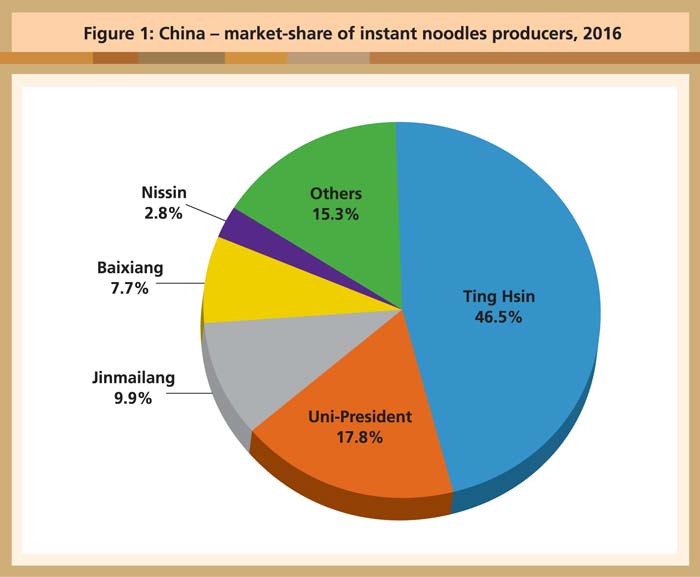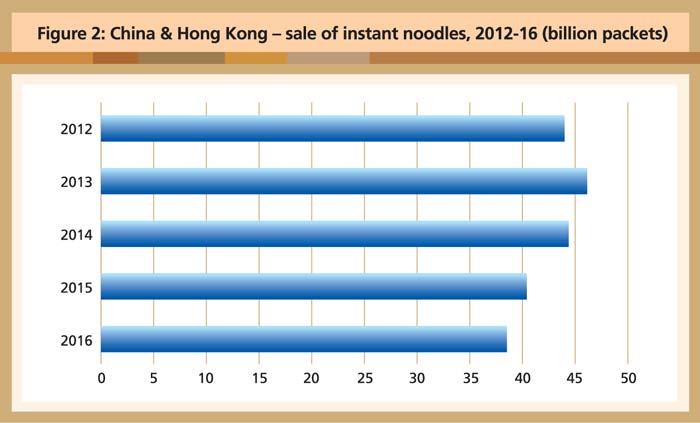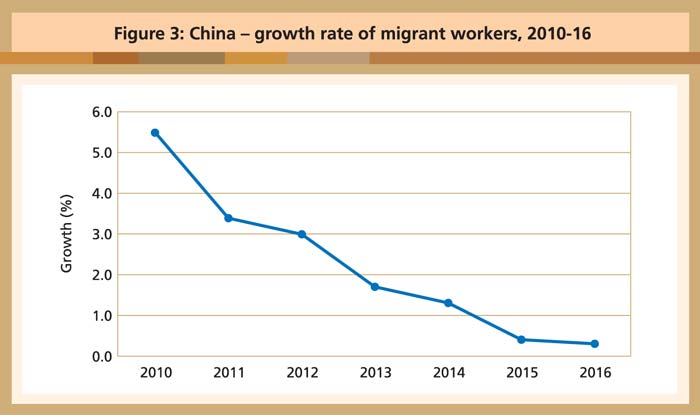



But it remains the world's top market
April, 2018 in Issue 1 - 2018, Markets
China’s appetite for instant noodles flourished from the 1990s to 2013, with the market dominated by brands such as Master Kang (produced by Ting Hsin), Uni-President and Nissin at the national level, and by Baixiang, Jinmailang and Hua Long at the regional level (Figure 1).

Source: Frost & Sulivan
According to the World Instant Noodles Association, sales in China grew at a double-digit rate annually between 1992 and 2010. This peaked in 2013, surpassing 46.2 billion packets – equivalent to 1,465 packets being opened every second. However, sales then fell for three consecutive years. In 2016, 38.5 billion packets were sold, a drop of 17% compared to 2013 (Figure 2).

Source: World Instant Noodles Association
Given that the Chinese economy has been robust and that the population has continued to grow, what has contributed to the fall in instant noodles sales? Four factors, all linked to the rising quality of life, provide some answers.
Reverse migration of workers
In China, migrant workers responding to the rural-urban pull have been among the biggest buyers of instant noodles. Rapid economic growth was first registered in the major coastal cities in the mid-1990s, and gradually expanded into the interior. Workers from rural areas rushed into these cities to find work. While the absolute numbers still go up each year, the growth rate has slowed tremendously since 2010 (Figure 3).

Source: National Bureau of Statistics, China
This growth rate covers workers who moved to cities other than their hometowns. If examined by region, the number of rural Chinese who opted for jobs in coastal or first-tier cities rose only up to 2014. In 2015, the migrant population decreased for the first time in about 30 years. The following year, 1.7 million fewer migrant workers arrived in these cities than in 2015.
In recent years, economic growth in China’s interior regions has been luring back migrant workers from the coastal cities. Now job opportunities have come up in areas closer to their hometowns. Apart from earning higher wages, the workers have benefitted from the lower cost of living and additional savings. With the skills and capital acquired in cities, many migrant workers have started their own businesses in their hometowns.
Those in second- or third-tier cities now utilise their higher disposable income for better-quality meals. This has affected the sale of instant noodles, which used to be the main food option for those who could not afford the cost of meals in metropolitan areas.

Pages : 1 2